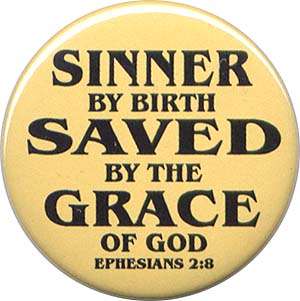John 1:50.
It's been an interesting week, particularly as I've been seeking to 'hear' what some have been saying in the atheist camp regarding the nature of Christianity, and the 'God' behind it being a monstrous invention that humanity would certainly be better without.
The argument, from what I can gather, is something like this - after numerous ages of death and suffering on our planet, "god" (or at least our rendition of him) decides to intervene by demanding attention (worship and total commitment) from us, and that if this isn't given, then more misery and tragedy will ensue. Christ, apparently, adds to this the additional terror of hell, and the entire primitive notion of blood sacrifice is played out in his death, concluded in the myth of resurrection. Like other religions, then, we have something which merely preys upon our fears and panders to our miss-placed wishes of escaping death, both of which are fool hardy and merely amount to a form of wicked abuse in the cold, hard light of the real world.
It all seems pretty conclusive - a fabrication that's just an ignorant conjecture on our part, until we knew better. Sown up? Well, only until you begin to consider what Christianity actually says about all of this.
Here's a statement worthy of consideration:
Religion consists of all the things (believing, behaving, worshiping, sacrificing) the human race has ever thought it had to do to get right with God. About those things, Christianity has only two comments to make. The first is that none of them ever had the least chance of doing the trick: the blood of bulls and goats can never take away sins (see the Epistle to the Hebrews) and no effort of ours to keep the law of God can ever succeed (see the Epistle to the Romans). The second is that everything religion tried (and failed) to do has been perfectly done, once and for all, by Jesus in his life, death and resurrection.
Robert Farrar Capon.
There's a really important insight hinted at here. In the Old Testament, there were lots of rules and laws, regulations and requirements regarding everything, but what can so easily escape us when we examine this material is that before any of it was delivered or required, God had already shown that something much better had to be at the very heart of what counts between ourselves and the one who made us.
There's a really pithy statement in the letter of James.
"Abraham believed God, and it was counted to him as righteousness. And he was called the friend of God" (2:23).
God asked a man to trust in His faithfulness, His promises, and he did - that brought about the essential first step in what became a life-long relationship, but that wasn't by any means the end of the story. As Abraham goes forward, the issue of our being what we can truly be, without all the trouble that still assails our hearts has to be faced. Religion or Reason may like to teach that we can, somehow, scrape through that one on our own, because these comfortable routes essentially seek to externalize our corruption, but God knows better. The reason we have a world filled with pain and sorrow is not because 'that's just how it is'... we're all just accidents of a cosmic explosion, so what can you expect (the meaning is meaninglessness). No, Christianity (and the life of Abraham) says we may have made it that way, that we have certainly royally screwed up (look where Abraham was raised), and life would therefore certainly be pointless, except that we haven't been left there.
After years of living amongst the compromises of kings and others in Canaan and the limitations of his own flesh, Abraham is asked by God to kill his one true son, Isaac (Genesis 22:2). Consider how that must have sounded to his ears - how could God want such a thing, ask such a thing... what kind of God is this! We're right to be staggered by the magnitude of how atrocious this appears. What is going on here? Naturally, the argument of the atheist appears fully sanctioned - see, this isn't a God worth knowing - he demands murder; where is the justice, where is the God that is supposed to be merciful. Reading the account carefully, however, gives a very different spin, because it appears that Abraham, as God's friend, understood that something much weightier was in mind. Notice, especially, when Isaac asks why they haven't brought a sacrifice what his father's answer states (Genesis 22:8).
There's, no doubt, various ways to interpret aspects of that moment, but what's really worth considering here, in the light of our present conversation, is that Jesus tells us that this man Abraham, who became the friend of God, saw something in those years (John 8:56) which informed his words and actions in moments like this one, and it meant that he saw beyond any veil of his own reasoning - which could have only been appalled - or religious requirement - which could only provide a miss understanding of this.
Before getting anywhere near trying to merely equate things to what reason or piety could offer, Abraham tells us in that statement to his son that he'd already penetrated much, much further into what was really going on - that is what we're needing to understand. On the one hand, perhaps, he understood that a God that had given him a heir at such an old age could easily provide an animal caught in a thicket for an offering (what actually happened), but that's just scratching the surface. Abraham "heard" the God of promise who had said to the first man and woman that He would bring remedy to their distanced souls, and what he's heard, as he considered this particular drama, was astonishing. The God who had fulfilled his promise to Abraham in these late years of his life (Genesis 21), working what was naturally impossible, was not going to abandon His promises now - this was a God of the impossible, of resurrection!
There was a true reconciliation coming, he perceived, by the son - the lamb, who would be offered up in our stead.
That is what is behind his words in that moment -
"God will provide Himself a lamb".
We may wish to argue about the why's and wherefores of what God would do and why it was done this way, but here, many centuries before the event itself, Abraham is certain it will come, and it is the moment that changes everything.
What this man shows us in his life and this event is that a true and comprehensive fellowship with God lies beyond the incarceration of our own small thoughts about what is - the reality is far greater.
Without that kind of veil being lifted, we're all busy seeking to make determinations and judgements of our own accord, so how can we truly evaluate our real condition when we don't actually hold anywhere near all the cards? Abraham had been gifted with the one thing that made the essential difference to our lives (Romans 4:5) - seeing that God is truly here and has done what is required to change our present poverty (Romans 8:3, 5:8).
This event, then, tells us something profound. God will break out against the violence that has been done to us and by us, not in an arbitrary or capricious manner, but by focusing it all in the offering and reconciling work of one - the son He would send.
The truth which Christianity seeks to address is that we're not at fault because we're just DNA machines who happen to be a little more developed than your average primate - the reason we hate, kill, lust and succumb so easily to wickedness is that evil is a very real, parasitical force at work in our world, and must be remedied. The resolve is not within us via reason or religion, even to live up to our own standards - we merely continue to perpetuate the malignancy - it has to come from outside - from one who can actually bring about our recovery, and in that moment on Mount Moriah with Isaac, Abraham gains a glimpse of who will provide that rescue.
The heart of Christianity is the Cross, and the one crucified upon it, because it is here we see that Jesus was in earnest regarding what He taught about righteousness, justice, mercy, and the requirements that these bring. Our sin was far more cancerous than we can ever imagine (Matthew 18:8-9), and no amount of reasoning or pious activity by us can change that. We may object to this, deeply, because it stings against our eccentric yet confident notions of our own capacity, but Golgotha, when rightly apprehended, is the termination of those pathetic, destructive whimpers.
The love of God truly costs all to heal us. That is the God who comes to befriend us.
Perhaps we would prefer a world in which we determine our own good, or at least one where we can actually do good, but that isn't what's here and now, so we need our eyes open to the truth that Abraham saw, that Jesus Himself has made real in death and resurrection, and that God will certainly establish as the bedrock of a creation that will be freed from sin and death (Revelation 21:5).
The void which imprisons us to a world of our own flawed doings has been bridged at the Cross. The D I Y market stalls of our reason and religion are closed. The God who made us has opened the road to the city built upon a love that will secure us forever.





No comments:
Post a Comment